General Secretariat
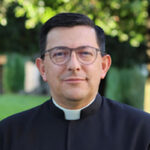
Fr. Luis Alberto Henao, L.C.
General Secretary
The General Secretariat is a support department that serves as a coordination link between the general director and the Congregation, as well as between the areas, departments, and commissions of the General Directorate.
The General Secretary oversees the Institutional Communication Office, the Official Publications Department, and the Historical Archive Department.
Functions:
-
Coordinate teamwork between the areas, departments, and commissions of the general government, as well as communication with the territories.
-
Oversee compliance with the general government calendar, which includes agreements with the general director, council meetings, meetings with territorial directors, etc. Additionally, responsible for developing the institutional calendar.
-
Advise and train territorial secretaries.
-
Draft official correspondence of the general director and his council: minutes, protocols, decrees, rescripts, etc. The general secretary’s signature on the minutes certifies the regularity of the decisions.
-
Manage the digital incoming and outgoing mailboxes for government matters. Oversee the protocol office, which is responsible for the numbering of incoming and outgoing matters from the General Directorate, according to the proper tabular system.
-
Safeguard the government documents archive in the current archive until their disposal or transfer to the Depository Archive and the Historical Archive, in accordance with the Archive Instructions.
General Administration
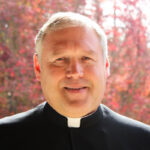
Fr. José Cárdenas, L.C.
Administrador general
The General Administration is a support department tasked with assisting in the control of assets, auditing, treasury, and legal supervision of the works of the Legion, as well as the preparation and monitoring of budgets.
Functions:
-
Develop the necessary systems to carry out the functions that fall under its responsibility, particularly the systems for accounting, auditing, budgeting, financial consolidation, and personnel management; also develop the norms and regulations for legal, treasury, budgeting, human resources, construction, systems, and auditing areas.
-
Coordinate the preparation of financial projections and budgets for all works and territories.
-
Oversee the monitoring of the approved budget, ensure compliance with regulations in the territories, and manage accounting audits.
-
Direct the operation of general information systems for accounting, budgets, personnel management, central information, and fundraising.
-
Safeguard financial resources, the real estate assets of the Legion, information related to individuals in the various branches, accounting and financial information, and IT assets.
-
Provide training and capacity-building for territorial administrators.
Office of the General Procurator
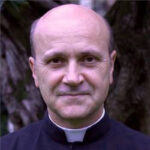
Fr. Javier Fayos, L.C.
General Procurator
The General Procurator is responsible for managing the Congregation’s legal matters before the Holy See, according to the guidance and directives of the general director and his Council.
Functions:
-
Process before the Congregation for Institutes of Consecrated Life and Societies of Apostolic Life the dispensations for the departure of religious with perpetual vows, processes of incardination, nihil obstat for sales exceeding the stipulated amount, and expulsion processes from the Congregation.
-
Before the Congregation for the Clergy: dispensation from the obligations inherent to diaconal or priestly ordination.
-
Before the Congregation for the Doctrine of the Faith: cases of delicta graviora as foreseen.
-
Competent matters before other dicasteries.
Department of History and Archives
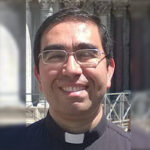
P. Rodrigo Ramírez, LC
Responsible
He is responsible for preserving, safeguarding, managing, transmitting, and enhancing the archives formed by the collection of documents received and drafted on any medium by the Congregation in the course of its activities. He also establishes, in this regard, in dependence on the General Secretariat, the criteria for consulting the archive holdings under his care.
Functions:
-
Develop classification plans and proposals for modifications and expansions of these plans for the management of current archives.
-
Oversee the management of such current archives.
-
Organize, reorganize, inventory, and classify the funds and documentary series in intermediate archives at the local, territorial, and general levels, as well as those already preserved in the General Historical Archive.
-
Collect material of any kind regarding the history of the Legion.
-
Preserve the documentary heritage and, when appropriate, transfer it to more current formats that allow for easier consultation.
-
Draft inventories, guides, and other possible archival tools (such as instructions, guides, databases, etc.) useful for carrying out the various functions described here.
-
Make archives and documents available and facilitate access for those interested (General Government, historians, institutional communication).
-
Enhance the documentary heritage with scientific and cultural studies on history and spirituality.
Department of Safe Environments

Catalina Gallego Barbier
Responsible
-
Auxiliaries and Consultants in Rome:
Fr. Benjamín Clariond, L.C., Fr. José Cárdenas, L.C., Fr. Clemens Gutberlet, L.C., Fr. Jaime Rodríguez, L.C., Fr. Gabriel Sotres, L.C.
Additionally, the department has advisors in various countries, including: Fr. Steven Reilly, L.C., Fr. Michael Grealy, L.C., Fr. Andreas Schöggl, L.C., Lic. Karl-Olaf Bergman, Dr. Laura Salvo, Mtra. Elena Barrero, and Lic. José Manuel de León.The Safe Environments Department assists the General Government in developing and implementing policies and procedures in the territories that ensure safe and appropriate environments for the human and Christian formation of minors and vulnerable adults entrusted to the pastoral care of the congregation or participating in its apostolic, educational, and pastoral activities.
Mission
- To propose to the General Director policies for prevention, handling of complaints, and support for those making accusations, as well as providing accompaniment and reparations to victims.
- To share best practices and advise territories that do not have an external accrediting agency.
- To give the nihil obstat to the Codes of Conduct before they are promulgated by territorial directors.
- To oversee the training provided in the formation houses in Rome regarding the protection of minors and the promotion of safe environments.
Principles
The work of safe environments is inspired by the following principles:
-
The priority is the overall safety of those involved with the members and works of the Congregation, with a focus primarily on prevention.
-
Any accusation must be handled in the territories in an agile, professional, effective manner, with pastoral sensitivity toward the affected individuals.
-
Victim care is the main concern, above all other considerations.
-
Collaboration with civil and ecclesiastical authorities in handling complaints.
-
Ensuring that the right to fair processes is upheld for all involved.
International Office of Institutional Communication
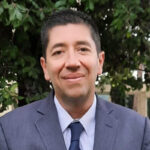
Juan Camilo Díaz B.
Responsible
The Institutional Communication Office is a service body that represents the institution before the media and is responsible for the institutional distribution channels used by the Legion of Christ.
It helps the leadership to consider the perception of the institution in the decision-making process and to discern the most timely words, media, and actions to effectively convey its message to its audiences.
Functions:
-
Lead the ordinary and special communication of the Legion of Christ.
-
Manage institutional information on websites, social media, apps, etc.
-
Develop content and distribution channels: written, design, audiovisual, multimedia.
-
Represent the institution before the media.
-
Prepare the newsletter of the General Executive Committee.
-
Coordinate the official translations of documents that are published.
-
In coordination with the Department of History and Archives, lead the production of historical audiovisuals for the Apostolic Resource Centre (ARC).


